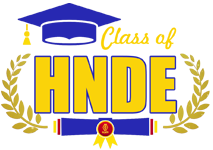Writing skills: causes and results (10/05 hrs)
• Focus: expressions used for describing causes/origins and expressions used for
describing results. e.g. was caused by, has become, led to, resulted in, as a result
of…
(Ref: Language in Use: Upper Intermediate-classroom Book page 80)
• Activities:
– Read and list the expressions used for talking about causes and results
– Write other expressions which could be used instead.
– Select a headline and expand it into a paragraph, using expressions you have
listed.
e.g. Explosion Kills 20 people: leaking gas pipe-damaged when road was repaired explosion -20 people killed.
More illiterate children-warns report: cuts in funds-fewer teachers-more
children- unable to raise funds
Informative/ expository writing (10/05 hrs)
• Text types: travel experience, interpret graphs/maps, paraphrasing
• Procedure: guided writing – Help in thinking ideas, ordering them, considering
vocabulary and grammar.\
Report writing(10/05 hrs)
• Writing reports of discussions, /meetings
• Annual reports: e.g. you are the secretary of the senior literary society. Write the
annual report giving an account of the activities of the society during the year
• Present a model with an activity. e.g. Read the following report and fill in the blanks
with the words given below.
Imaginative writing (10/05 hrs)
• Encourage students to create stories: Provide questions to stimulate writing. e.g.
What if you see some aliens in your village?
• Involve students in writing and illustrating books.
• Writing based on pictures-creative dialogues/stories
Persuasive and argumentative writing (10/05 hrs)
– Letters to the editor- Provide opportunities to read and collect different letters
from newspapers. Discuss structure, reason/argument/request etc. Get students
to write their own letters to the editor. Provide the topic and guidelines; help
them in planning, writing and redrafting.
Analytic writing (10/05 hrs)
• Focus: critical and evaluative views of texts, drama, films and issues.
• Take account of the student’s familiarity with the topic. Guide students to form their
own view taking into account a range of evidence and opinion and to organize their
ideas and information distinguishing between analysis and comment

